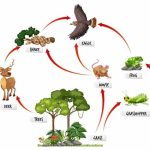In the fast-paced world of technology and instant gratification, it’s becoming increasingly challenging to engage children in traditional learning methods. However, fostering a love for learning is crucial for their intellectual development. Including hands-on activities is a good approach to add enjoyment to learning. Science kits have become a great resource for parents who want to provide their kids with a more engaging and enjoyable education. These kits go beyond textbooks, allowing kids to explore the wonders of science through exciting experiments and activities. In this article, we’ll delve into the benefits of using science kits and explore some cool options that can turn your child’s learning experience into an adventure.
The Benefits of Hands-On Learning:
Engagement and Retention:
Children learn best when they are actively involved in the learning process. Science kits provide a hands-on approach, promoting engagement and enhancing information retention.
By physically interacting with materials and conducting experiments, children not only understand scientific concepts better but also remember them for a longer duration.
Real-World Application:
Science kits often simulate real-world scenarios, allowing children to see how scientific principles apply in everyday life.
Connecting theoretical knowledge to practical applications helps children appreciate the relevance of what they are learning, making it more meaningful.
Problem-Solving Skills:
Experimenting with science kits encourages critical thinking and problem-solving skills.
When faced with challenges during experiments, children learn to analyze situations, formulate hypotheses, and adjust their approach— an essential skill set that extends beyond the realm of science.
Fostering Curiosity:
Science kits spark curiosity by presenting intriguing phenomena and unanswered questions.
As children explore and seek answers through experimentation, their natural curiosity is nurtured, laying the foundation for a lifelong love of learning.
Now, let’s explore some exciting science kits that can transform your child’s learning experience.
- Chemistry Sets: Unleash the Young Chemist:
- Robotics Kits: Building the Future:
- Microscope Sets: Explore the Microscopic World:
- Physics Kits: Unraveling the Mysteries of the Universe:
- Environmental Science Kits: Nurturing Eco-Consciousness:
- Astronomy Kits: Journey to the Stars:
- Geology Kits: Unearth the Secrets of the Earth:
- Electronic Kits: Building Circuits and Understanding Electronics:
- Entomology Kits: Exploring the World of Insects:
- Paleontology Kits: Digging into the Past:
- Mathematics Kits: Making Math Tangible:
- Weather Science Kits: Predicting the Elements:
- Anatomy and Biology Kits: Investigating the Human Body:
- Physics Experiments Kits: Delving Deeper into Physical Phenomena:
Chemistry sets are a classic choice for introducing children to the world of atoms, molecules, and reactions.
Look for sets that include safe and age-appropriate chemicals, along with detailed instructions for various experiments.
From creating colorful chemical reactions to understanding basic principles like pH, these kits make learning chemistry an enjoyable adventure.
Robotics kits provide a hands-on introduction to engineering and technology.
With components like motors, sensors, and programmable controllers, children can build their robots and learn basic coding skills.
These kits not only teach the principles of mechanics and electronics but also instill creativity as children design and personalize their robotic creations.
Microscope Sets open up a whole new dimension of exploration, allowing children to observe the microscopic world around them.
Choose sets with a range of magnifications and prepared slides, enabling kids to investigate various specimens.
Exploring the intricate details of cells, microorganisms, and tiny structures enhances observational skills and nurtures a deeper appreciation for the complexity of life.
Physics kits cover a broad spectrum of topics, from simple machines to electricity and magnetism.
Opt for kits that include hands-on activities like building simple circuits, constructing bridges, or experimenting with the principles of motion.
These kits not only make physics concepts more tangible but also inspire a sense of wonder about the fundamental forces that govern the universe.
Environmental science kits focus on sustainability, ecosystems, and the impact of human activities on the environment.
Activities such as water purification experiments, understanding the greenhouse effect, and exploring renewable energy sources help children grasp the importance of environmental conservation.
These kits contribute to raising environmentally aware and responsible citizens.
Astronomy kits transport children to the vast reaches of the cosmos, fostering an interest in space exploration.
Kits that include telescopes, star charts, and educational materials about celestial bodies provide a captivating introduction to astronomy.
Observing the moon, planets, and constellations ignites a sense of wonder and curiosity about the mysteries of the night sky.
Geology kits offer a fascinating journey into the world beneath our feet. These kits typically include specimens such as rocks, minerals, and fossils, allowing children to explore the diverse landscapes that make up the Earth’s crust. By examining geological formations and identifying different minerals, kids gain a deeper understanding of the planet’s history and the forces that shape its surface.
For budding engineers and tech enthusiasts, electronic kits provide a hands-on introduction to the world of circuits and electronics. These kits often come with components like resistors, capacitors, and LEDs, enabling children to build simple circuits and understand the basics of electronic engineering. As they experiment with different configurations, they develop a practical understanding of how electronic devices function.
Entomology kits cater to the natural curiosity children often have about insects. Equipped with magnifying glasses, collection tools, and informational guides, these kits encourage kids to observe, identify, and study various insects. The study of entomology not only provides insights into the fascinating world of bugs but also instills a sense of appreciation for the interconnectedness of ecosystems.
For young dinosaur enthusiasts, paleontology kits offer an exciting opportunity to become junior paleontologists. These kits typically include fossil replicas, excavation tools, and educational materials about prehistoric creatures. By engaging in simulated digs and assembling replica skeletons, children gain a hands-on understanding of the science of paleontology and the mysteries of Earth’s ancient history.
While science often goes hand in hand with mathematics, specialized mathematics kits can make abstract mathematical concepts more tangible. These kits may include manipulatives, puzzles, and games that make learning math an interactive and enjoyable experience. By incorporating hands-on activities, children develop a concrete understanding of mathematical principles, paving the way for improved problem-solving skills.
Weather science kits introduce children to meteorology and the fascinating world of weather patterns. These kits often include instruments such as thermometers, barometers, and wind vanes, allowing kids to monitor and record weather conditions. Engaging in weather-related experiments, such as creating mini-tornadoes or understanding the water cycle, not only educates children about meteorological concepts but also deepens their appreciation for the dynamic forces shaping our atmosphere.
For those interested in the intricacies of life, anatomy and biology kits provide a hands-on exploration of the human body and other living organisms. These kits may include models, dissection tools (for older children), and educational materials on topics like anatomy, physiology, and genetics. By dissecting model organs or studying cellular structures, children gain insights into the complexity and beauty of living organisms.
While basic physics kits cover fundamental concepts, more advanced physics experiment kits are available for older children who want to explore the subject in greater depth. These kits often include materials for conducting experiments on electricity, magnetism, optics, and more complex mechanical systems. They provide a stepping stone for students interested in pursuing physics as a more specialized field of study.
Also Read – Science Quiz For Kids
The Parental Role: Nurturing a Love for Learning
As a parent, your involvement in your child’s exploration of science kits is crucial. Here are some tips to maximize the educational benefits and fun derived from these kits:
- Encourage Curiosity:
- Create a Dedicated Learning Space:
- Participate Actively:
- Relate Science to Everyday Life:
- Encourage Documentation:
Foster a curiosity-driven approach by allowing your child to ask questions, formulate hypotheses, and design their experiments. Please encourage them to explore beyond the instructions provided and express their creativity.
Designate a specific area in your home for science experiments. This could be a corner of a room or a small table with easy access to necessary materials. Having a dedicated space helps create a focused and organized learning environment.
Engage in the learning process alongside your child. Share in their excitement, ask questions, and discuss the outcomes of experiments. Your active participation not only strengthens the parent-child bond but also reinforces the value of learning.
Connect the concepts learned through science kits to real-life situations. Discuss how the principles they explore apply to the world around them, making science a relevant and integral part of their daily experiences.
Please have your child keep a science journal where they can record their observations, hypotheses, and experiment outcomes. This not only enhances their writing skills but also provides a valuable resource for reviewing and reflecting on their scientific endeavors.
Science kits, with their diverse range of topics and activities, offer a versatile and effective means of making learning enjoyable and meaningful for children. Through the use of these kits, kids may learn about certain scientific fields while also honing vital abilities like creativity, critical thinking, and problem-solving.
By giving your kids the resources and chances to discover the wonders of science, you, as a parent, may influence their educational path. From the microscopic world to the vast reaches of space, science kits open up a universe of possibilities for discovery and learning. So, embark on this educational adventure with your child, and watch as their love for learning grows, one fascinating experiment at a time.
In a world where screens dominate, and attention spans dwindle, incorporating hands-on learning experiences is essential for nurturing a love of learning in children. Science kits not only make education enjoyable but also lay the groundwork for future scientists, engineers, and critical thinkers. Purchasing scientific kits that are interesting to your child may transform their educational path into an exciting voyage full of curiosity, discovery, and limitless possibilities. Thus, why not bring a science kit home with you today and see the joy in your child’s eyes as they discover the mysteries of science? Doing is, after all, the most excellent way to learn!
For more such interesting blogs, Visit EuroKids
















